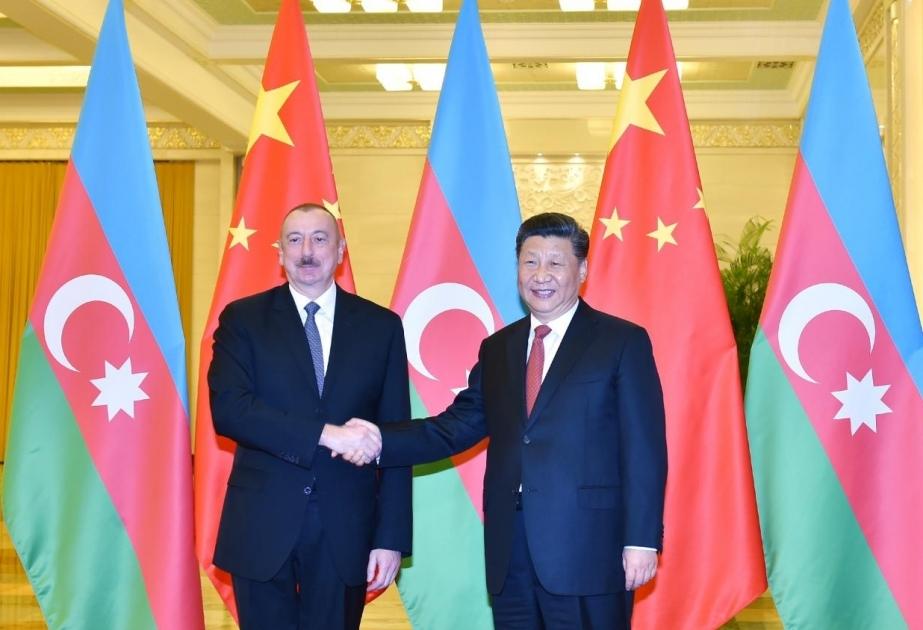Azerbaijan’s strategic pivot: Impact of new alliance with China Baku’s shifting ties: A challenge to Western influence?
Azerbaijan's recent efforts to bolster its relationships with China and Iran are raising eyebrows in the West. As Baku reopens its embassy in Tehran and deepens its strategic partnership with Beijing, experts are debating the implications of these moves on regional geopolitics and Western interests.
Goble’s concerns: A shift that undermines Western influence?
Paul Goble, a US-based international politics analyst, argues that Azerbaijan’s recent diplomatic maneuvers could tilt the regional balance of power away from Western interests. In his July 16, 2024, analysis titled “Azerbaijan expands ties with China and Iran, benefiting Moscow and hurting West,” Goble outlines the implications of these developments:
“Two developments over the past couple of weeks reflect the reordering of geopolitics in the South Caucasus since Azerbaijan expelled Armenian armed forces from its territory. Both events are likely to intensify that trend, with consequences not only for the countries in the region but also for the international order.”
Goble highlights two significant events: the signing of a strategic partnership declaration between Azerbaijani President Ilham Aliyev and Chinese President Xi Jinping at the Astana meeting of the Shanghai Cooperation Organization on July 4, 2024, and the reopening of Azerbaijan’s embassy in Tehran on July 15, 2024, after a lengthy closure due to a terrorist attack of January 27, 2023. Goble contends that these moves are reshaping the power dynamics in the South Caucasus, potentially weakening the West’s influence and providing Moscow with an opportunity to reassert its dominance.

Tase’s rebuttal: Azerbaijan’s pursuit of national interests
In response to Goble’s analysis, Peter Tase, another US-based pundit, argues that Azerbaijan’s actions are driven by its own national interests rather than an attempt to undermine Western powers.
Tase asserts that “Azerbaijan is not serving or harming anyone’s interests but is focused on its own national interests. The reopening of Azerbaijan’s embassy in Tehran and the signing of a strategic document with China, as well as maintaining good relations with Russia, are based on Baku’s strategic goals and the desire to pursue versatile and beneficial foreign policies. These moves are designed to enhance Azerbaijan’s network of international allies and boost its economic interests without antagonizing major powers.”
Tase also challenges Goble’s analysis by pointing out that diplomatic engagement, even with rival states, is a common practice in international relations. He draws parallels to other countries maintaining embassies despite historical tensions:
“For instance, Greece has maintained an embassy for Albania despite an outdated state of war declaration, and the US continues to operate its embassy in Beijing despite ongoing disagreements. These examples illustrate the importance of keeping diplomatic channels open.”
Strategic alliances and regional dynamics
Goble’s analysis focuses on how Azerbaijan’s rapprochement with China and Iran could shift regional power dynamics, potentially benefiting Moscow.
He notes that “the first of these developments reflects China’s longstanding effort to expand its influence in the Caucasus to ensure the east-west transit of goods and counter Türkiye’s role in the region. Azerbaijan’s engagement with China serves to express displeasure with the West’s perceived pro-Armenian stance and demonstrate that Baku has more maneuverability than many assume.”

In contrast, Tase emphasizes that Azerbaijan’s strategic partnerships are part of a broader effort to secure its national interests and foster economic growth. He underscores the importance of Azerbaijan’s alliances with Türkiye and its role in regional projects.
“The Karabakh Declaration, adopted at the informal Summit of the Heads of State of the Organization of Turkic States in Shusha on July 6, 2024, highlights Azerbaijan’s commitment to regional development, green and circular economies, and international transportation corridors. These priorities reflect Baku’s strategic vision for a prosperous future in the South Caucasus.”
Conclusion
As Azerbaijan navigates its new alliances, the geopolitical landscape of the South Caucasus is evolving. The differing perspectives of Goble and Tase underscore the complexity of Azerbaijan’s foreign policy and its implications for regional and global players.
While Goble views Azerbaijan’s moves as a challenge to Western influence, Tase sees them as strategic decisions aimed at enhancing Azerbaijan’s national interests and economic growth. As the situation unfolds, the international community will be watching closely to see how these developments shape the future of the region.








